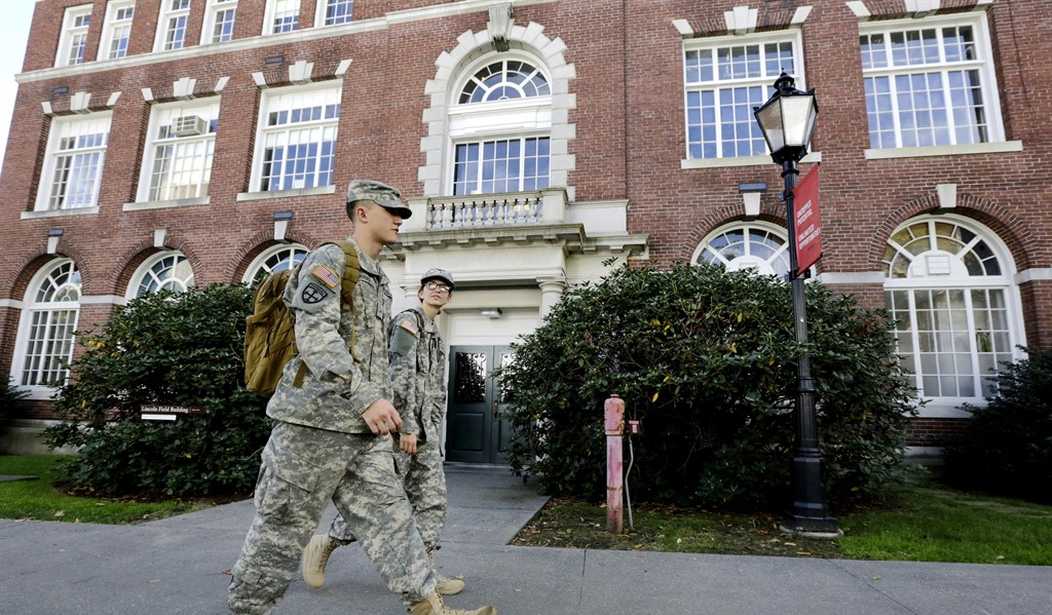“Sady” never even got to hear about college. When she showed up at her high school college counselor’s office, she was shooed right back out the door — she’d let slip that she was joining the U.S. Army after graduation. Sady had been dismissed so fast she never even had the chance to say why she had shown up in the first place: college was her destination. The military was simply the vehicle she’d chosen to get herself there.
Now, on the heels of military service and anticipating her freshman year of college, Sady was bewildered by the college matriculation process and was already facing down fears of failure before attending her first class. She felt more disoriented in this environment than being on night patrol with malfunctioned night vision goggles. She desperately wished someone, anyone, with experience would reach out to help dispel these mystifications of higher ed. Given the right compass, Sady knew she’d become a successful graduate. She was driven; she was resilient; she’d handled complex equipment involving millions of dollars before she’d legally been allowed to drink. But Sady continued to be on the receiving end of reflexive stereotyping about who serves in the U.S. military and why, from the very professionals she needed guidance from. She was adrift in a sea of directionless information.
“Sady” doesn’t actually exist in real life — but hundreds of thousands of Sadys do. She represents the composite lived experience of the majority of the post-9/11 student veteran population, and is living proof that Congress merely perpetuating historically transformative legislation (turning the GI Bill into the Forever GI Bill, for instance) is no guarantee that veterans’ lives will be positively transformed by it. Such was the reality well before the COVID-19 pandemic hit. And while COVID complicated the higher education landscape for GI Bill users and other student veterans, what the pandemic more revealed were the systemic problems that have simply always existed for these students, barring their success.
Recommended
Crucially, according to recent studies and surveys fielded by the likes of the George W. Bush Institute and Syracuse University’s Institute for Veterans & Military Families, it turns out that the barriers in front of “Sady’s” academic success have little to do with her having served in the military, despite the majority of college administrators and the public assuming such to be the case. Rather, the barriers to her higher education success have everything to do with the underrepresented populations that “Sady” typically comes from, compounded by an education administrative class that operates on stereotypes about military personnel rather than factual knowledge.
Sixty-three percent of student veterans are first-generation college students. While all veterans since the beginning of the All-Volunteer Force consistently rank education benefits among the top three reasons for joining the military, among female veterans, that leaps to number one. Additionally, nearly all student veterans are nontraditional students — in their later twenties or early thirties; with a family to provide for; experiencing some health concerns, too; and with a specific, inflexible degree timeline mandated by the GI Bill to operate within. They don’t have the luxury of mixing up their paperwork, their coursework, or their degree schedule: The GI Bill doesn’t compromise to meet individual students’ attenuating circumstances. It’s a federal law applicable to over 18 million individuals, after all. It takes an act of Congress to modify it.
And yet, as first-generation college students, student veterans have almost no cultural familiarity with higher education to know where to sense its many pitfalls, from choosing an alma mater with a quality return on investment, to providing against student debt traps, to translating the course catalog into a realistic degree timeline. They are liable to pick a college based on a Google search, because that’s what their buddy did. They are further liable to skyrocketing transition stress levels, as they attempt to navigate a Department of Veterans Affairs website — whose links regularly dead-end — while trying to figure out what their GI Bill benefits are and where they can use them, and whether they’ll still need to get a job to support their children while in school.
Once again, being first-generation college students, they couldn’t rely on relevant advice from their family, and that long-ago high school counselor never imparted even the basics of what to look for or avoid in thinking about college. Any rocky start to the student veteran’s higher education journey is fed by these elements — and not military service per se. And yet it’s the military service that the higher education community fixates on as being “problematic.”
We’ve had twenty years now of post-9/11 veterans. If we are serious about celebrating the “Month of the Military Child,” then it’s high time to reverse the stereotypes about veterans, and for colleges and universities to acknowledge and embrace student veterans as representative of those very underrepresented populations they profess to want to serve. And not only that — they need also to embrace the fact that, given access to veteran- and nontraditional student-supporting programs, student veterans make for some of the highest performing students on campuses of higher education today.
Rebecca Burgess is senior editor at American Purpose, a visiting fellow at Independent Women’s Forum, founder of The CivMil Project, and a 2021 FDD National Security Fellow.

























Join the conversation as a VIP Member